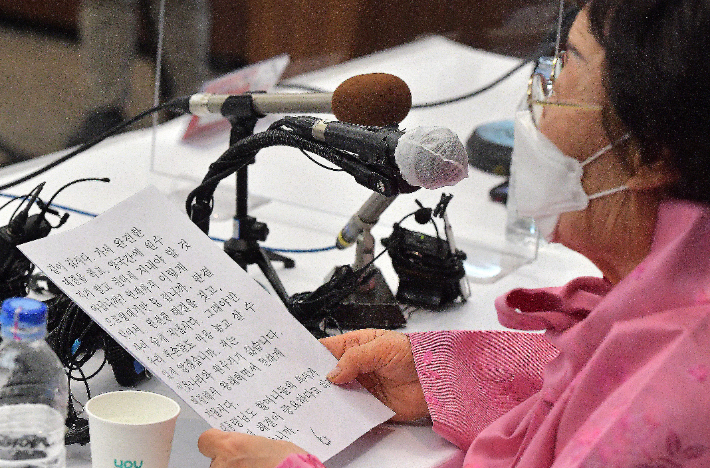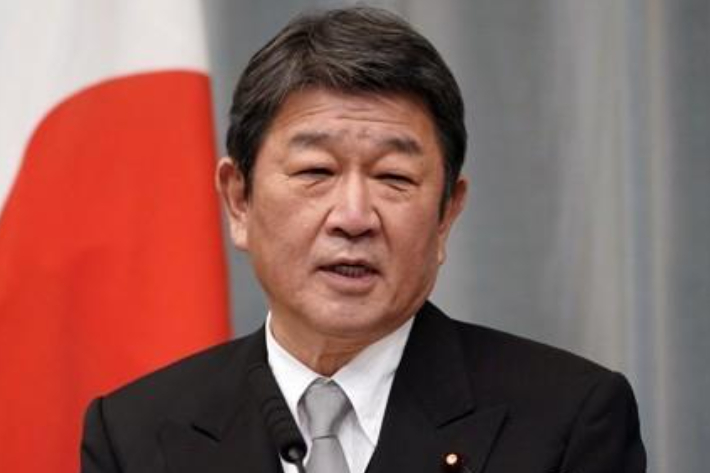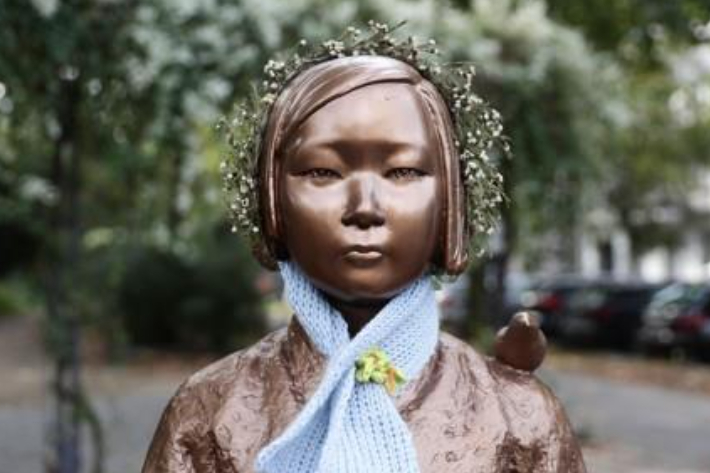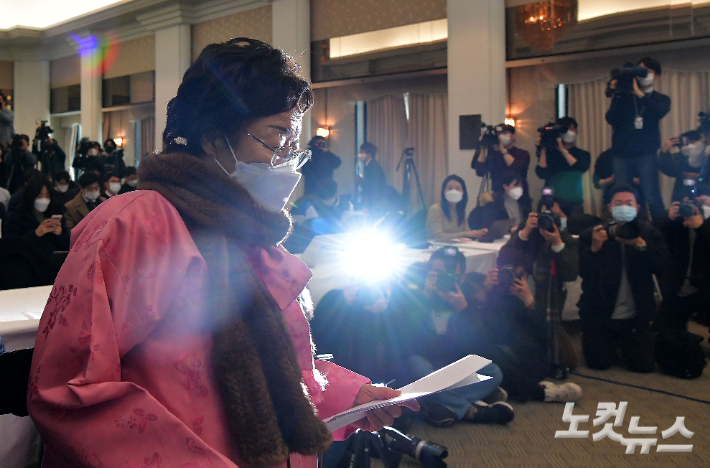Grandmother Lee Yong-soo, a victim of Japanese military comfort women, attends a press conference calling for a referral to the United Nations International Court of Justice for the comfort women issue held in Jung-gu, Seoul on the 16th. Reporter Park Jong-min-Lee Yong-soo (93), a victim of comfort women in the Japanese military, and related organizations insist on solving the comfort women problem through international lawsuits, and the impact on Japan-Korea relations is paying attention.
At a press conference on the 16th, Grandma Lee Yong-soo and others appealed to the government, saying, “Please accept the ICJ (International Court of Justice) judgment so that Japan can realize and reflect on the wrongdoing.”
Referencing the issues of the past history of Korea and Japan, including comfort women, to an international trial or arbitration is a difficult choice, given Japan’s superior influence in the international community.
However, as the ROK-Japan relations deteriorated, such as a ruling in a Korean court that did not recognize the Japanese government’s sovereign immunity last month, the exit was almost blocked.
“I’ve done everything I can so far,” said Grandmother Lee, and “Let’s go to the International Court together with this responsibility, without much to say,” and revealed the reason for the inevitable last resort.
◇Lee Yong-soo’s grandmother “Let’s go to the International Court of Justice”… Enough odds, even if you lose it’s meaningful

Grandmother Lee Yong-soo, a victim of Japanese military comfort women, is holding a press conference at the press center in Jung-gu, Seoul on the 16th, calling for a referral to the United Nations International Court of Justice for the comfort women issue of the Japanese military. Reporter Park Jong-min-In international lawsuits, Grandma Lee and others argued that despite Japan’s relative superiority, Korea’s odds were sufficient.
Korea has no ICJ litigation experience, and unlike Japan, there are no ICJ judges of its own nationality, but considering the ICJ’s transparency, public confidence, and past precedents, it is worth trying.
They pointed out that even if the results of the trial were somewhat less than expected, the results were not small just by confirming Japan’s colonial and war crimes internationally through the litigation process.
It is also an opportunity to break the Japanese side’s false frame that Korea is violating international law and is clinging to the issue of the past for money.
In addition, 30 years have passed since the comfort women issue was raised, but it could be an exit strategy in a situation where it is tightly blocked with walking or retreating.
They said, “(The ICJ lawsuit) is not a way to aggravate the dispute between Korea and Japan, but a legal and rational solution with the authority of the ICJ.” This is an argument to hit the floor and go up.
◇ Low possibility of acceptance in Japan for “a headache” Avoid international public opinion such as comfort women

Japanese Foreign Minister Toshimitsu Motegi. yunhap news-However, the problem is the acceptability of the Japanese side. Japan’s Liberal Democratic Party’s Chairman of Political Affairs Shimomura Hakubun demanded that the South Korean government comply with the ICJ complaint on the comfort women issue on the 4th, and Foreign Minister Motegi Toshimitsu made similar comments.
The Japanese government has already criticized the Korean court’s judgment of compensation for compensation for comfort women as a violation of international law, so there is no reason to reject the international lawsuit.
Nevertheless, it is generally observed that Japan is not likely to accept the ICJ referral card if Korea takes out the ICJ referral card.
Japan doesn’t want the comfort women issue, which is a national government, to be publicized in the international community in any way.

The Peace Girl statue installed in Berlin, Germany. yunhap news-You can find out just by looking at the 2012 German-Italian Ferrini case, which is a major comparative case in relation to the ICJ lawsuit. Germany clearly admitted the illegality of forced labor during the Second World War, but Japan’s reflection and apology were far from being done.
If Japan stands in an international court, it must admit colonial and criminal acts such as the comfort women issue, or at least in the process of defending it, the past crimes will be revealed.
In fact, Professor Banzai Hiroyuki Waseda University, an expert in Japanese international law, recently warned of the danger of ICJ lawsuits, saying, “It will be a troublesome problem for the Japanese government.”
◇Japan’s’Dokdo Island lawsuit’ could counteract the waters… The government’carefully review’
Therefore, the Japanese side is highly likely to reject the ICJ for other reasons, even if the Korean government accepts the request of Grandmother Lee Yong-soo and others and proposes to refer the ICJ.
The ICJ lawsuit is a structure that does not come true if either party rejects it. A trial is established only when the other party responds to the proposal of one party and an agreement is reached on the details of the lawsuit through a’special agreement’.
If the Korean government decides to file an ICJ complaint, it is highly likely that the Japanese government will focus on procedural issues such as sovereign waiver, which is more favorable to them, while emphasizing essential issues such as the illegality of the comfort women system.

Dokdo. National Company Promotion Foundation-The Japanese side also demanded that the Dokdo issue be referred to the ICJ all at once, and could counterattack with a’water ride’ strategy.
The Korean government will of course refuse to do so, but it is highly likely that it will lead to another tedious battle without being able to lock the first button on the contents of the lawsuit.
Lee Ki-beom, a research fellow at the Asan Institute for Policy Studies, said, “If you can go to the ICJ by picking up the comfort women problem, there will be no problem, but there are many issues between Korea and Japan. It’s not a good thing,” he said.
However, even if the ICJ lawsuit does not come true, it seems clear that South Korea’s victims’ decision to accept international trials, which they have been reluctant to do, will have a pressing effect on Japan.
In this regard, the Ministry of Foreign Affairs said, “I will continue to communicate with Grandma Lee Yong-soo,” and showed a modest response, saying, “I will carefully review the necessity of referral to ICJ.”
–

